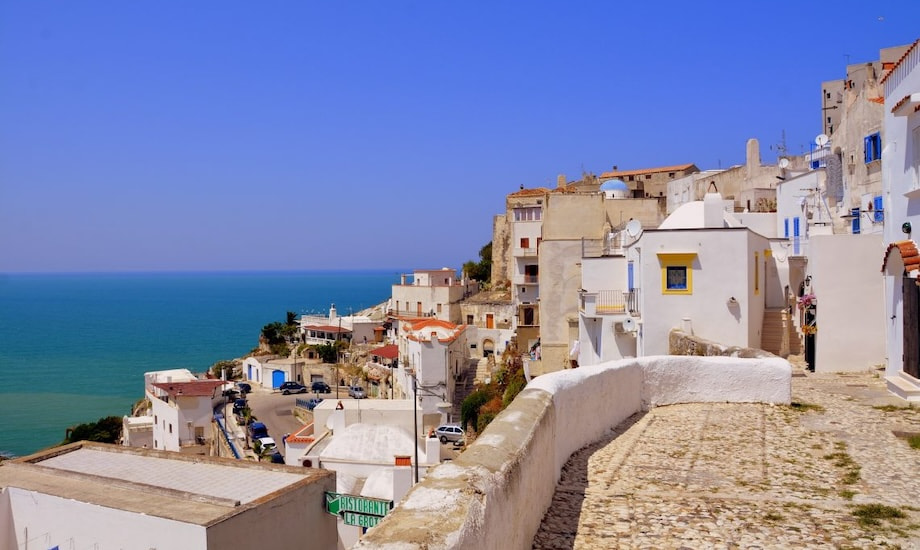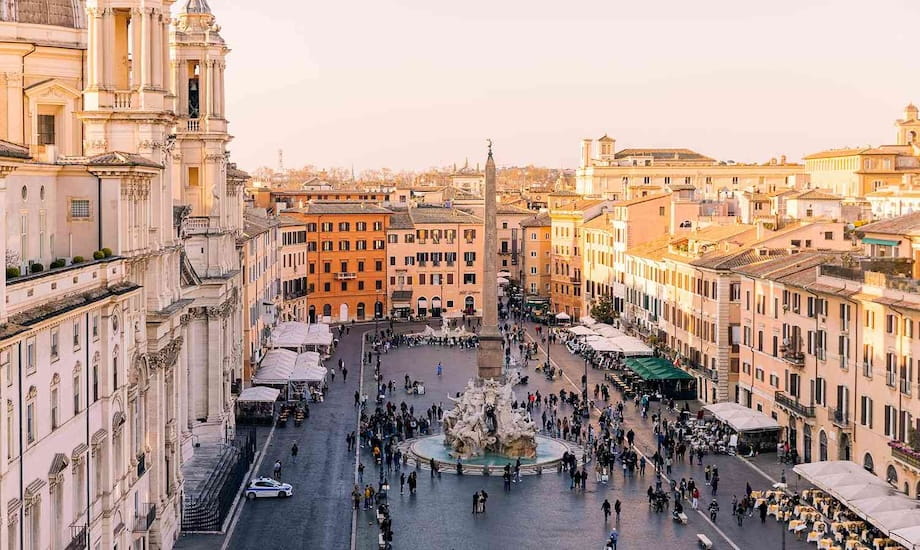Italy is one of the most attractive countries for foreign investors thanks to its flat tax, historically lower house prices than those of the United States, United Kingdom, UAE and Asia and a favourable exchange rate.
Italy is the dream destination if you’re seeking rich history, stunning landscapes, amazing lifestyle and sunshine filled days.
And if you’re thinking of investing in Italian property, you’re spoilt for choice.
From city hotspots to large, open farmhouses in sprawling countryside, the type of property you choose can offer impressive rental returns.
So, let’s look at some reasons why investing in Italy is a great idea for foreign buyers.
Why Choose Italy for investing in High Profile Real Estate?
The Italian lifestyle is all about balance.
Working hard and enjoying life go hand in hand.
So, if you’re thinking about buying a property for your golden years, then it’s a great country to consider.
Plus, the healthcare system in Italy is rated as one of the best in the world.
Regarding long-term investments, Italy also offers the advantage of a secure and stable property market.
Although general growth in the economy has been slow, property prices have been increasing over the last few years, which is great if you plan to hold onto your purchase for a long period.
Let’s analyse the first five advantages of buying property in Italy.
- Whether you want to expand an existing portfolio or you’re thinking about buying a retirement property for your future, Italy offers many options with little to no restrictions on purchasing as a foreign buyer. The main condition is to have an Italian tax number. An Italian bank account is also helpful for ease of borrowing.
- As one of the top ten global economies, you can feel safe in the knowledge that your investment will offer you a positive return both in rent and resale when the time is right.
- Ranked as one of the most popular travel destinations in the world, Italy’s tourism trade is fast and furious. With millions of visitors pouring into its stunning cities and ambling through the sprawling countryside every year, investing in a holiday rental could offer a healthy supplemental income.
- Italy’s economy and housing market are ideal for long-term investors due to a slow, yet upward trend in economic growth and purchase prices.
- When it comes to connectivity, Italy has it all. With 77 airports dotted around the country, it’s a short flight from most Eurozone countries, including the UK.
The Italian Property Market
As a foreign investor, understanding the market in which you plan to invest is key.
Just like the rest of the world, Italy’s market needed a recovery period after the pandemic, however since then it’s shown signs of growth.
In terms of the property market, some regions have recovered better than others.
Foreigns investors and the desire for a home in Italy
After the covid stop in 2022, pent-up demand–coupled with the quest for investment, diversification, lifestyle, economic factors, and even political uncertainty has thus begun again to push HNW and UHNW foreigns to look elsewhere in the world to meet their real estate needs.
And among the most popular European countries to buy homes, according to main Investment Banks for Luxury properties specialists, is Italy.
Second homes have become the “plat du jour” in European destinations such as Tuscany, Sardinia, Umbria, Puglia, Spain and South of France; but Italy remaining one of the most attractive countries for foreign investors.
Both the residential and commercial real estate markets offer numerous investment opportunities for international citizens coming to Italy.
The Italian Government has also introduced specific programs for Ultra-Wealthy individuals (UHNW) who wish to move residence to Italy by purchasing a property in the country.
Over the past five years, Xerendipity Property Management have received many requests from USA, UK and UAE buyers to assist for investing and managing their Real Estate Investment in Italy and Europe.
The vital interest of international investors in the Italian market during the summer had already been anticipated by other operators.
In the June-August quarter, 2022 foreigners who had chosen Italy to purchase a second home had grown by 0.24% y/y, with UAE, USA, Germans, and British remaining the main interested parties.
Important Financial Implications of moving to Italy
The art, culture, lifestyle, scenery and food of Italy make it an enticing destination for foreigns wishing to move and relocate to Italy.
If your dreams include making Italy your home, it’s important to be aware of the following financial planning implications.
Italian taxes scheme
For taxation purposes, Italy treats tax residents and non-tax residents differently.
Tax residents are taxed on worldwide income, while non-tax residents are only taxed on Italian-sourced income.
You’re considered a tax resident in Italy if you’ve lived in the country for more than 183 days during a given tax year and meet any of the following criteria.
- Maintain an established home in the country
- Maintain an established center of business and/or social interests in the country
- Are registered with the Italian public registrar
As a tax resident of Italy, you’ll need to pay taxes on your worldwide income, regardless of where that income is produced.
Taxable income includes earned income as well as income from real estate, dividends and capital gains.
Under the current tax regime, the following tax rates typically apply to tax residents of Italy.
- Regional income tax – 1.23%-3.33%
- Municipal income tax – 0%-0.8%
- National income tax – See the table below
|
Italy’s Individual Income Tax Rates 2023 |
|
|
Tax Rate (%) |
Tax Bracket (yearly earnings) |
|
23% |
€0-€15,000 |
|
25% |
€15,001-€28,000 |
|
35% |
€28,001-€50,000 |
|
43% |
€50,001 and up |
In an effort to encourage high-net-worth and ultra-high-net-worth expats to move to Italy, the country offers a special tax regime for new residents.
An individual who has been a non-tax resident of Italy for at least nine of the last 10 years may be eligible for the following tax benefits.
- A five-year personal income tax exemption of 70% (Northern Italy Regions) or 90% (Southern Italy Regions) on any employment, self-employment or business income for working individuals;
- An extension of this tax exemption for an additional five years if a taxpayer meets certain conditions. The extended exemption begins at 50%; however, individuals with at least three dependent children may be eligible to exclude up to 90% of their income;
- Based on new tax regulations introduced in 2019, any foreign income of a new resident living in southern Italy is taxed at rate of 7% for 10 years. This includes pension income, capital gains, dividends, rental income and Social Security benefits.
The Tax Treaty
The United States maintains a tax treaty with Italy that is intended to prevent double taxation on income and capital gains.
The treaty’s provisions include the following.
- Capital Gains Tax – A flat 26% capital gains tax rate applies to the sale of securities.
- Real Estate Tax – Sales of Italian property are taxed at 20% if the property is sold within five years of purchase and not held as an individual’s primary residence for most of the five years. After five years, there’s no capital gains tax on Italian property sales.
- Net Wealth Tax – Italian tax residents are subject to a wealth tax on investments and real estate owned outside of Italy. Financial assets held outside the country are subject to a 0.2% wealth tax, while real estate held abroad is taxed at 0.76% of fair market value.
As noted above, individuals who qualify under Italy’s special tax regime for new residents are exempt from declaring foreign assets for tax purposes and aren’t subject to the wealth tax.
Retirement income
Pension payments and traditional IRA distributions are considered taxable income by the Italian government.
Because Italy has a progressive tax rate, an individual’s exact tax liability depends on their total annual income.
Like many countries, Italy doesn’t explicitly recognise the tax-exempt nature of Roth IRAs distributions.
That means withdrawals from these accounts may be treated as ordinary income.
When you withdraw from Roth accounts as an American expat living in Italy, you may be double taxed on that money, because contributions were made with after-tax dollars and withdrawals would most likely be taxed.
So, if you’re an American planning to move to Italy, consider withdrawing from your Roth accounts before moving to ensure your distributions aren’t taxable.
Before you decide on a strategy, be sure to consult with a qualified expat financial advisor to ensure your decision is in line with your overall financial strategy and long-term goals.
Real Estate Planning
As a foreigns citizen living in Italy, you may be subject to Italian inheritance laws if you die without the necessary estate planning documents in place.
In contrast to the United States, for example, where individuals are free to pass along their assets to anyone they wish, Italian estate planning law clearly establishes how assets are to be distributed.
Under Italy’s “forced heirship” law, individuals cannot disinherit immediate family members or leave them a share of the estate that is less than the law dictates.
Only when an individual has no legitimate heirs in Italy or elsewhere can he or she dictate how the estate is distributed.
The following table shows the minimum required distributions to various family members.
|
Reserved Heirs |
Quota distributable by the deceased in the manner of their choosing |
Reserved Quota to legitimate heirs (or mandatory heirs) in Italy |
||
|
Spouse** |
Children |
Parents |
||
| Spouse and one child |
1/3 |
1/3 |
1/3 |
0 |
| Spouse and two/more children |
1/4 |
1/4 |
1/2* |
0 |
| One child (no spouse) |
1/2 |
- |
1/2 |
0 |
| Two/more children (no spouse) |
1/3 |
- |
2/3* |
0 |
| Spouse (no child no parents) |
1/2 |
1/2 |
0 | 0 |
| Spouse and parents |
1/4 |
1/2 |
0 |
1/4* |
| Parent/s (no spouse no children) |
2/3 |
- |
- |
1/3* |
* This amount is to be split in equal shares between all children.
** The spouse maintains the right to continue living in the family home.
It’s also important to note that the taxation of inherited and gifted assets depends on your residency status.
If you’re a tax resident of Italy (you spend more than 183 days living in the country in any given year), you’ll be taxed on the value of your worldwide assets.
Non-residents and expats who qualify under the “new resident” regime are only taxed on Italian assets.
Our expertise and comprehensive management solutions ensure that your property and your wealth is well-maintained, legally compliant, financially sound, and strategically positioned in the market.
Preserve and enhance the value of your property… Value Your Time.

Francesco De Biase
Chairman BoD & C.E.O.







 ©Xerendipity Corporation Ltd.
©Xerendipity Corporation Ltd. ©Xerendipity Corporation Ltd.
©Xerendipity Corporation Ltd.